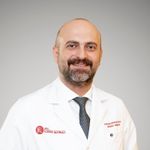























Liposuction that is, fat removal, is performed in order to obtain a more smooth and proportional body by removing the fat accumulated in certain parts of the body.
It is one of the most common operations in plastic surgery. But contrary to what is known, it is not a weight loss surgery, it is an operation performed on patients who already have ideal or near-ideal weight, but have disproportionate fat accumulation in their body.
Who is Liposuction What is a suitable candidate for?
Despite diet and exercise, those who have stubborn lubrication in different parts of their body are very suitable candidates for this procedure.
Since this procedure is also an operation, it is important that you do not have an additional disease that impairs your recovery. It is also recommended to quit smoking as it affects the process badly.
Before Liposuction
As with other surgeries, you should stop consuming blood thinners and herbal tea 1 week before. If you smoke, it is very important for wound healing that you do not smoke in the 3 weeks before and after the surgery.
Liposuction Surgery
Before the operation, when the patient is standing, it is drawn from where to take fat and where it will not be taken, if the simultaneous fat injection is to be done, its drawings are made.
Generally, general anesthesia is used, but if it is to be done in a single and small area, it can also be done with local anesthesia. Processing time also varies depending on the area to be performed (1-5 hours). Liposuction can be performed alone or in combination with surgeries such as tummy tuck and breast aesthetics.
After Liposuction
It is normal to have pain similar to the pain that occurs after very heavy sports after liposuction. After the operation, a special medical corset is worn according to the area performed and you are asked to use it for 4-6 weeks.
It is normal for a bloody liquid to come out of the holes where liposuction was performed in the first 24 hours. Heavy sports are not recommended for the first 3 weeks. It is normal to have bruising and swelling during this period. After 3 weeks, the edema gradually dissolves and the body begins to form.
What Happens If I Gain Weight After Liposuction?
If you gain weight after liposuction, new fat cells will not form, but the existing ones will grow, so the liposuctioned areas will expand a little, but will not be the same as before.
What procedures are available at Group Florence Nightingale Hospitals?
How many medical staff are there at Group Florence Nightingale Hospitals and what accreditations do they have?
Liposuction is a cosmetic surgery that “sucks” out fat from areas that are hard to lose through a healthy diet and exercise, while liposculpture is the shaping of the skin back to its desired shape. Both are done in conjunction with one another at the same time. Most areas can be treated. Traditionally the most popular areas to treat are the stomach/abdomen, chin and neck, love handles, arms, and inner and outer thighs. Becoming more popular are the knees, calves and ankles, all with very successful results.
While liposuction can permanently remove fat cells and alter your body shape, it should not be viewed as a quick fix for individuals who are significantly overweight. The procedure works best for those who have already lost some weight themselves and are close to their ideal weight but need help tackling stubborn areas of fat in problem areas.
Numbness in the specific area of your body where the fat was removed is to be expected for the first couple of weeks, usually, this will improve after 6 to 8 weeks. You may also need to wait a few days before going back to work. As for your normal activities, especially exercise, you may have to wait a few weeks before resuming.
Overall, the recovery time may vary from patient to patient. In most cases, patients can return to light activities within 2 to 3 days and are also able to go back to work after two weeks. As for the results, you may see visible results after 3 to 4 weeks, however, it can take several months before you see the final outcome.
Liposuction remains one of the most popular cosmetic surgeries with a success rate of 85%, offering patients the enhanced body shape they've been craving. However, just like any other surgeries, it also comes with possible risks. Complications vary and are dependent on the procedure is as well as your surgeon’s skills. Possible risks and complications include:












































Liposuction that is, fat removal, is performed in order to obtain a more smooth and proportional body by removing the fat accumulated in certain parts of the body.
It is one of the most common operations in plastic surgery. But contrary to what is known, it is not a weight loss surgery, it is an operation performed on patients who already have ideal or near-ideal weight, but have disproportionate fat accumulation in their body.
Who is Liposuction What is a suitable candidate for?
Despite diet and exercise, those who have stubborn lubrication in different parts of their body are very suitable candidates for this procedure.
Since this procedure is also an operation, it is important that you do not have an additional disease that impairs your recovery. It is also recommended to quit smoking as it affects the process badly.
Before Liposuction
As with other surgeries, you should stop consuming blood thinners and herbal tea 1 week before. If you smoke, it is very important for wound healing that you do not smoke in the 3 weeks before and after the surgery.
Liposuction Surgery
Before the operation, when the patient is standing, it is drawn from where to take fat and where it will not be taken, if the simultaneous fat injection is to be done, its drawings are made.
Generally, general anesthesia is used, but if it is to be done in a single and small area, it can also be done with local anesthesia. Processing time also varies depending on the area to be performed (1-5 hours). Liposuction can be performed alone or in combination with surgeries such as tummy tuck and breast aesthetics.
After Liposuction
It is normal to have pain similar to the pain that occurs after very heavy sports after liposuction. After the operation, a special medical corset is worn according to the area performed and you are asked to use it for 4-6 weeks.
It is normal for a bloody liquid to come out of the holes where liposuction was performed in the first 24 hours. Heavy sports are not recommended for the first 3 weeks. It is normal to have bruising and swelling during this period. After 3 weeks, the edema gradually dissolves and the body begins to form.
What Happens If I Gain Weight After Liposuction?
If you gain weight after liposuction, new fat cells will not form, but the existing ones will grow, so the liposuctioned areas will expand a little, but will not be the same as before.
What procedures are available at Group Florence Nightingale Hospitals?
How many medical staff are there at Group Florence Nightingale Hospitals and what accreditations do they have?






















Liposuction that is, fat removal, is performed in order to obtain a more smooth and proportional body by removing the fat accumulated in certain parts of the body.
It is one of the most common operations in plastic surgery. But contrary to what is known, it is not a weight loss surgery, it is an operation performed on patients who already have ideal or near-ideal weight, but have disproportionate fat accumulation in their body.
Who is Liposuction What is a suitable candidate for?
Despite diet and exercise, those who have stubborn lubrication in different parts of their body are very suitable candidates for this procedure.
Since this procedure is also an operation, it is important that you do not have an additional disease that impairs your recovery. It is also recommended to quit smoking as it affects the process badly.
Before Liposuction
As with other surgeries, you should stop consuming blood thinners and herbal tea 1 week before. If you smoke, it is very important for wound healing that you do not smoke in the 3 weeks before and after the surgery.
Liposuction Surgery
Before the operation, when the patient is standing, it is drawn from where to take fat and where it will not be taken, if the simultaneous fat injection is to be done, its drawings are made.
Generally, general anesthesia is used, but if it is to be done in a single and small area, it can also be done with local anesthesia. Processing time also varies depending on the area to be performed (1-5 hours). Liposuction can be performed alone or in combination with surgeries such as tummy tuck and breast aesthetics.
After Liposuction
It is normal to have pain similar to the pain that occurs after very heavy sports after liposuction. After the operation, a special medical corset is worn according to the area performed and you are asked to use it for 4-6 weeks.
It is normal for a bloody liquid to come out of the holes where liposuction was performed in the first 24 hours. Heavy sports are not recommended for the first 3 weeks. It is normal to have bruising and swelling during this period. After 3 weeks, the edema gradually dissolves and the body begins to form.
What Happens If I Gain Weight After Liposuction?
If you gain weight after liposuction, new fat cells will not form, but the existing ones will grow, so the liposuctioned areas will expand a little, but will not be the same as before.
What procedures are available at Group Florence Nightingale Hospitals?
How many medical staff are there at Group Florence Nightingale Hospitals and what accreditations do they have?
CONTACT SUCCESSFUL